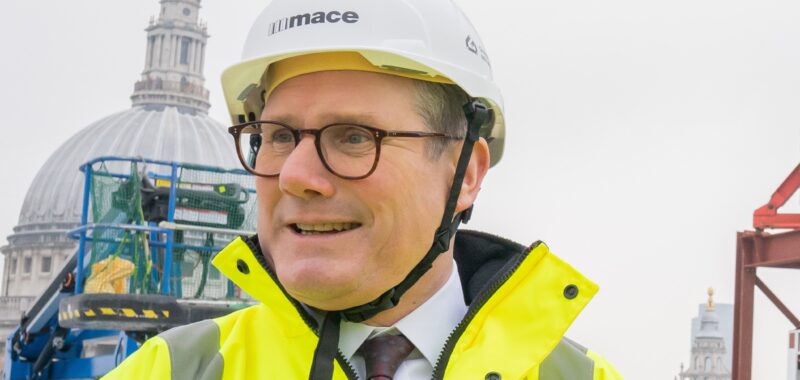Among the optimists is Oliver North, director of cost and commercial management at Mace Consult. On the other hand, businesses lower down the supply chain are not so confident.
Mace’s Oliver North said: “Whilst last year’s Q4 figures taken in isolation tell a story of an industry that has continued to have its challenges, what they don’t show yet is the difference being made by a new government that is taking an assertive position on enabling delivery and increasing capital expenditure.
“Over the coming months, pending the spring announcements on the Planning and Infrastructure Bill and the Plan for Change, the pipeline will become clearer, which is anticipated to boost confidence, attract private investment and catalyse recovery and growth for the industry.”
So that all sounds great.
But others, including a former Labour shadow minister for business, reckon that new tax burdens being placed on businesses will forestall recovery.
Gordon Banks served as an MP for Ochil and South Perthshire from 2005 to 2015, including as a shadow minister for Business. He is a director of Cartmore Building Supplies in Fife, which he co-founded in 1986, now part of the Purvis Group.
He has written to the prime minister, saying: “I appreciate you are looking for UK businesses to lead us out of the economic quagmire we have been locked in. However burdening the very businesses you need to grow the economy, with these additional tax burdens, appears to me to simply mean that your plan will fail spectacularly.”
He writes: “Changes to the inheritance tax, specifically business property relief (BPR) unveiled in the budget will have an enormous and damaging impact on family businesses like ours. [Purvis Group is owned by 76-year-old Robert Purvis.] They present a material threat to our business, our workers, our local economy and our community.
“The need to accrue for an impending 20% inheritance tax bill is forcing us to review our plans for the future of the group business. Indeed, not to plan for such a possibility would border on negligence.

“As a result, there is absolutely not doubt that we will be forced to cut investment to try and accrue a capital sum to offset a future tax bill.”
He tells the prime minister that, unless Purvis Group can find £10m somewhere, it will have to sell assets to raise capital.
Banks’ letter is one of a number being co-ordinated through the Builders Merchant Federation (BMF) to alert the government to concerns felt across the building materials sector on tax proposals.
BMF chief executive John Newcomb said: “Gordon Banks’ letter is one of a number being forwarded to government from across our membership highlighting that the unintended consequences of the Budget could wipe out what it was aiming to do, which is stimulate economic growth.
“Construction is absolutely critical to the lifeblood of the UK economy, but we are hearing across the industry that the proposals in inheritance taxation, as well as the additional costs in relation to National Insurance, are likely to have a devastating impact.”
The Construction Plant-hire Association (CPA) is also part of a cross-sector campaign against changes to business property relief and inheritance tax.
CPA chief executive Steven Mulholland has also written to the prime minister in recent weeks, saying: “Your pledge to get Britain building again can only be delivered through renewed investment in new equipment, technologies, innovations, and people. The October budget failed us on each of these levels. Our members remain excluded from being able to take advantage of the full expensing allowance. Meanwhile, the rise in NI [national insurance] is a tax on jobs and will deter companies from taking on more people, and will slow increases in wages at a time when we need to increase the construction skills base.
“Looking ahead, the proposed changes to BPR as part of wider inheritance tax reform will have a massive and detrimental impact on SMEs (20% of SMEs work in construction) and family run businesses – the backbone of construction plant-hire, and the wider business communities throughout the UK.”
The question is, therefore: when the good times do finally come back round again, will anyone be left to do the work?

